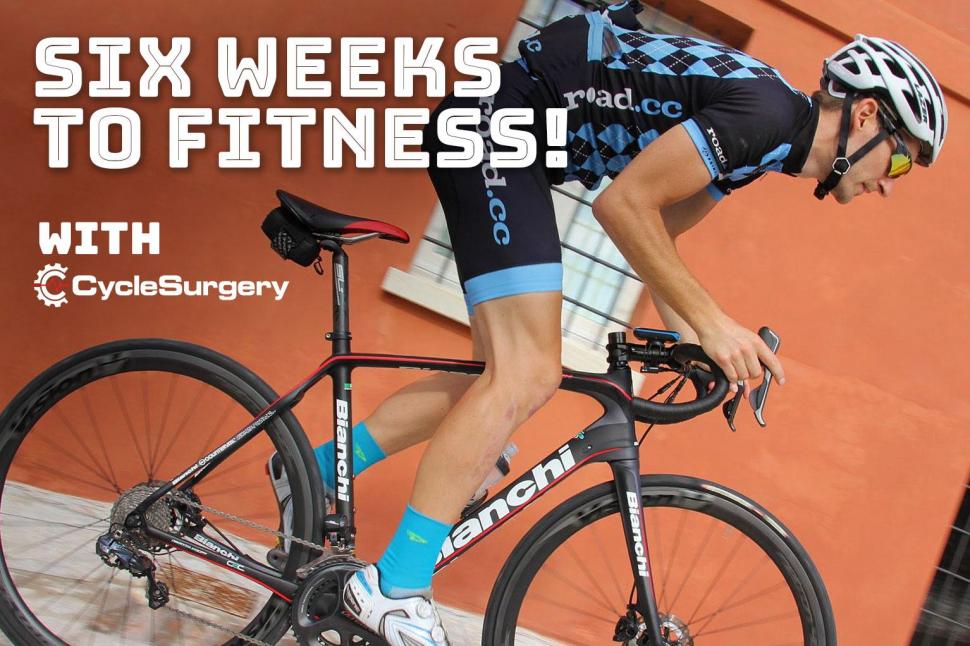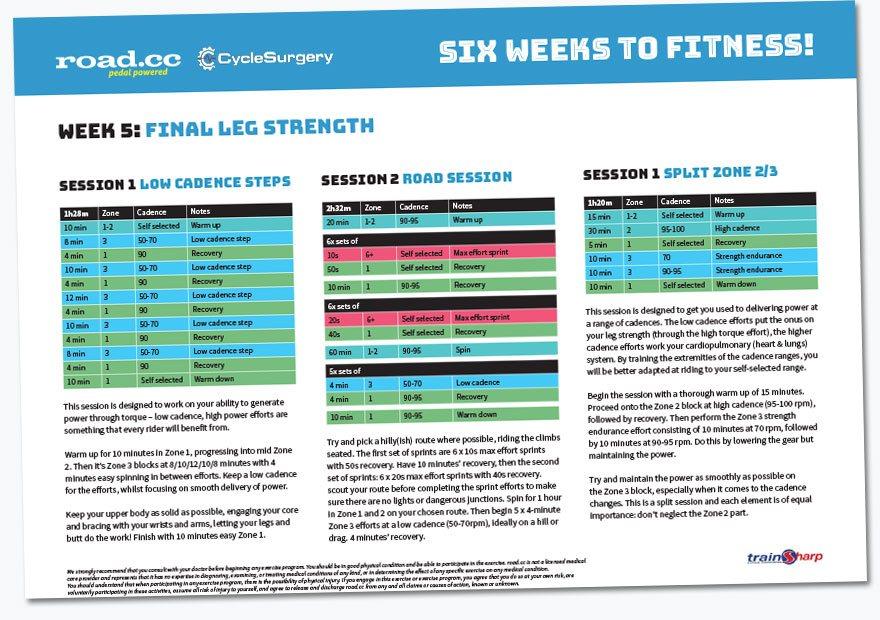- News
- Reviews
- Bikes
- Accessories
- Accessories - misc
- Computer mounts
- Bags
- Bar ends
- Bike bags & cases
- Bottle cages
- Bottles
- Cameras
- Car racks
- Child seats
- Computers
- Glasses
- GPS units
- Helmets
- Lights - front
- Lights - rear
- Lights - sets
- Locks
- Mirrors
- Mudguards
- Racks
- Pumps & CO2 inflators
- Puncture kits
- Reflectives
- Smart watches
- Stands and racks
- Trailers
- Clothing
- Components
- Bar tape & grips
- Bottom brackets
- Brake & gear cables
- Brake & STI levers
- Brake pads & spares
- Brakes
- Cassettes & freewheels
- Chains
- Chainsets & chainrings
- Derailleurs - front
- Derailleurs - rear
- Forks
- Gear levers & shifters
- Groupsets
- Handlebars & extensions
- Headsets
- Hubs
- Inner tubes
- Pedals
- Quick releases & skewers
- Saddles
- Seatposts
- Stems
- Wheels
- Tyres
- Health, fitness and nutrition
- Tools and workshop
- Miscellaneous
- Cross country mountain bikes
- Tubeless valves
- Buyers Guides
- Features
- Forum
- Recommends
- Podcast
 Six weeks to fitness - week 4
Six weeks to fitness - week 4Six weeks to fitness - week 4
We're now into our fourth week of our six-week plan that we're bringing you in association with Cycle Surgery. Last week our training experts at Trainsharp had you working at threshold efforts, and this week it's more of the same. Only a bit harder. You're at the half-way point in the plan now, so think of the work you've put in over the past three weeks and the gains you'll make by sticking at it!
How did our Guinea pigs get on?
Goran Huljenic
 Bremen, Germany
Bremen, Germany
Age: 29
In past I've been a strong cyclist but at the moment I work 52 hours a week. I'm really fed up with my current unfit state, and my dream for 2017 is to ride Torino-Nice. It sounds like a long shot, but I believe that if I give my best in next 7 months it is possible. I have to dream big!
Goran Huljenic: This week was hard, but that's what you expect from threshold pushing. First session was actually fun and short, but engaging. It was really windy, which is actually good in my total absence of hills. As a second session I choose the Capacity efforts. That was a hard session! The last and longest Zone 5 segment was a real cracker. Thanks to my former running training I knew that I had to save enough juice to ride last hard segment to its fullest. The third session was enjoyable as I made a longer ride out of it, even though third threshold segment was really hard to sustain. As a reward for hard week I finished the third session with 2 small cyclocross laps around lakes. Looking forward to a little more relaxed Week 4 and longer hilly ride on next Saturday.
Chris Hayes
 London, UK
London, UK
Age: 50
I'm just over 100kgs, but I've been very fit in my past (I played rugby and squash at a fairly high level). My riding comprises getting on the bike and going for a ride and, predictably, my performance has plateaued. I was thinking about employing an online trainer, but will take this opportunity to see how much I could improve with a programme rather than just getting out on the bike.
Chris Hayes: A hard week this one, made harder by my mis-calibrating my heart rate zones. My resting HR is low-to-mid-40s, and I max out on the bike at 145-150. I can get into the 170s doing intense cardio, but I can't get there on the bike. Anyway, I initially set my maximum heart rate to 170, but repeated threshold reps hardly got me into Zone 4, so I re-calibrated to a maximum of 155 which seems to have sorted things out.
It feels a fair reflection of my effort - I certainly couldn't sustain a harder, prolonged effort. Still, if anyone's got any views on this I'd be interested; I'm only cheating myself, etc. I can hear purists muttering about the rules under their breath!
I did some hill reps around Shoreham, Toys Hill, Ide Hill, etc. on Saturday and, though I took it easy, it hurt. And my usually always sore legs are now ever sorer. So I had a rest day today and will be out again tomorrow morning. I'm heading off to Spitalfields Cycle Surgery tomorrow to get a 520 Edge which will give me real time data. Bit of retail therapy will sort my sore legs out!
Week four: more threshold
There's no optional third session this week so in that sense it's an easier workload than last week, and the first hill reps session will be familiar if you did the optional third session in week two. The second session involves a couple of fairly long intervals working above and below your threshold effort, both pushing it up from below and pulling it up from above. These over/under sessions are a really good way to increase your threshold effort, and also increase the amount of time you can spend there.
Session 1: hill reps
This session is similar to previous weeks' hill reps, and again it includes both low-cadence strength intervals and higher cadence endurance work. You'll need a hill that takes you about 10 minutes to climb; either that, or a nice block headwind. It's designed as an outdoor ride but you can bring it indoors if you like; if you do, you can cut down the warm-up and warm-down to 10-15 minutes to keep the session manageable without boredom setting in.
Session 2: tempo/threshold
A short session, but one that packs in some hard work. The main filling in the sandwich is two 12-minute intervals where you're working at just under you threshold, but after every two minutes you ramp it up for 30 seconds to work above your threshold. The trick is to not slack off at the end of the hard effort but to keep the workload high: drop back down to just below your threshold effort, no further. Try and maintain your form on the bike: don't rock on the saddle, keep you pedal stroke smooth and stay relaxed.
Training indoors
Last week we had a look at some essential tips for training outdoors, and this week we're turning our attention to indoor training. The benefits of indoor training are that it's very time-efficient, it's not weather-dependent and it's easier to make it repeatable as there are less factors influencing your performance. The downsides? Well, it can be boring, and noisy. And you'll need somewhere you can do it without your significant other / kids either laughing at you or moaning at you. But if you can get over those hurdles it's a great way to improve your fitness, especially if time is the thing you struggle with most.
Indoor accessories
Kinetic floor mat £49.49: High quality, dense foam training mat that's great at damping vibration and keeping your carpet looking pristine.
Continental Ultra Sport training tyre £29.99: Tough training tyre that'll withstand many miles of indoor abuse
Cycleops Bike Thong £25: Keeps the sweat off your bike and includes an accessories pocket for your phone, or an emergency mid-session energy gel
Minoura mag riser 3 £10: Simple riser for your front wheel if your trainer didn't come with one
Comfort is key
Just like outdoor riding, comfort is key when you're training indoors. The first thing you need is a fan. Well, the second thing. Clearly you need an indoor trainer first. There's very little airflow indoors and that means when you sweat you don't cool yourself efficiently. Getting the air moving means you stay cool and don't overheat.
Another thing you should make sure you have is a riser block for your front wheel. Most indoor trainers hold the wheel above the floor, so if you don't have your front wheel at the same level then your bike will feel pretty odd. If you don't have a specific riser that came with your trainer you can buy one, or just use a wooden block or a thick book (one that you don't want, because you'll drip sweat all over it)
A mat isn't essential, but it can dampen vibration from your trainer making it a quieter experience (for everyone), and it also means that you're not sweating and depositing bits of tyre all over your carpet. You can use a cheap yoga mat; specific trainer mats tent to be a bit thicker with a denser structure to bear the weight of the trainer better.
If you're spending a lot of time training indoors then it might be worth getting a spare wheel or just a specific trainer tyre to save your good stuff for the outdoors. Trainer tyres use a much harder compound so they don't wear as quickly.
A small towel is also handy. Drape it over your bar and stem. You can use it to mop your brow, and it also stops sweat from dripping onto your headset and frame, which can cause corrosion.
You tend to sweat more when you're training indoors: it's warmer, and there's not as much airflow, so your body compensates. Make sure you stay hydrated and keep enough water close to hand so you don't need to stop a session to refill.
See you next week!
Next week we'll be moving on to the fifth set of sessions: Final leg strength, with some sprint efforts in there. See you then!
Disclaimer: We strongly recommend that you consult with your doctor before beginning any exercise program. You should be in good physical condition and be able to participate in the exercise. road.cc is not a licensed medical care provider and represents that it has no expertise in diagnosing, examining, or treating medical conditions of any kind, or in determining the effect of any specific exercise on any medical condition. You should understand that when participating in any exercise program, there is the possibility of physical injury. If you engage in any part of this exercise program, you agree that you do so at your own risk, are voluntarily participating in these activities, assume all risk of injury to yourself, and agree to release and discharge road.cc from any and all claims or causes of action, known or unknown.
Dave is a founding father of road.cc, having previously worked on Cycling Plus and What Mountain Bike magazines back in the day. He also writes about e-bikes for our sister publication ebiketips. He's won three mountain bike bog snorkelling World Championships, and races at the back of the third cats.





Screenshot below of the Sentencing Council guidelines for death by dangerous driving, Culpability A, the category which has a starting point of...
Thanks @Rendel, I'll look into them - they compare well with the Terreno Zeros that I already tried:...
Our car-dominated urban environment is repressive and hot - let's see if we can desecrate the countryside
Are you confusing a clearly opinionated - nay, biased rag like road.cc with a balanced, respectable news organisation like the BBC?
Car spreading https://climatevisuals.org/carspreading/ https://cleancitiescampaign.org/carspreading
"Welcome to your local Council - you don't have to be a moron to work here, but it really helps if you want to blend in".
Laverack still offer the same machine in a rim brake version so the "disc" is there to differentiate it from its stablemate.
Quite right - get those soapboxes off our roads. As everyone knows, the right place for them is the internet.
It's finally live. Here is the link :...
Where's the motor, joking